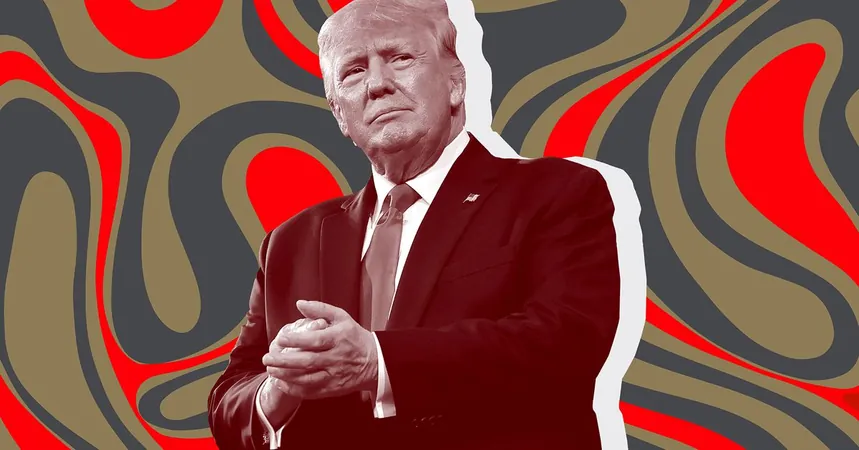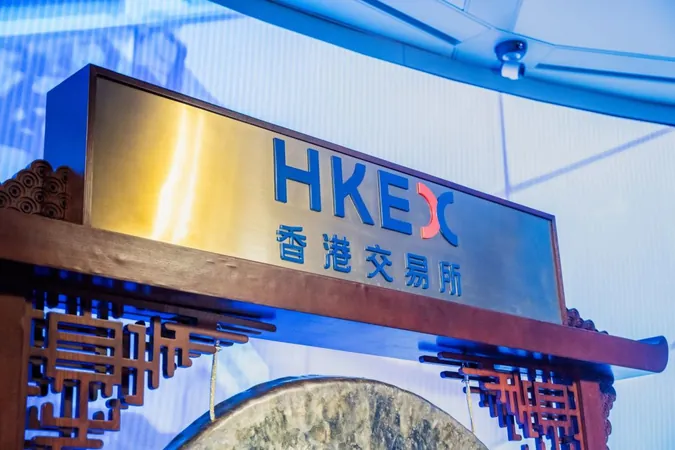
Auto Industry Urges Trump to Retain Key EV Tax Credit Amidst Regulatory Uncertainty
2024-11-21
Author: Chun
In a desperate bid to influence the future of electric vehicles in America, the auto industry is imploring President-elect Donald Trump to maintain the $7,500 tax credit for electric vehicle (EV) buyers. The call comes in the wake of Trump's electoral victory and his administration's anticipated policy changes.
In a letter dated November 14, the Alliance for Automotive Innovation—the industry's leading lobbying group representing major players like Ford, General Motors, and Stellantis, alongside foreign automakers—expresses a strong desire for the new administration to sustain the financial incentives for electric vehicle buyers and manufacturers that were instituted during Joe Biden’s presidency. They argue that such incentives are essential for maintaining U.S. competitiveness in the global automotive market and fostering quality job creation within the sector.
The alliance is urging Trump to 'promote stability and predictability in auto-related emissions standards,' a request that reflects the industry's desire for a more consistent regulatory environment. However, they also acknowledge the need for “reasonable and achievable emissions regulations,” hinting that some relaxation of Biden’s stringent tailpipe standards might be acceptable. This presents an intriguing contradiction in their appeal, as they seek to balance stability while also opening the door for regulatory rollbacks.
Historically, Trump has been critical of Biden’s environmental policies and has promised—during his campaign—to dismantle the EV incentives on his first day in office. Discussions within his transition team have reportedly focused on potential steps to eradicate the EV tax credit, along with new mandates designed to curb carbon emissions by 2032 primarily through increased EV sales.
During his previous term, Trump had already taken significant actions to roll back emissions standards established by the Obama administration, and there are concerns he may attempt to repeat this with Biden's policies. Auto industry leaders like John Bozzella, CEO of the Alliance for Automotive Innovation, appeared to support stricter emissions rules under Biden, albeit while labeling some targets as “stretch goals.”
The request for “reasonable and achievable” standards may suggest that the auto industry is prepared for a more lenient approach to emissions targets, essentially pushing deadlines further into the future while hoping for clarity amid the regulatory chaos common to political transitions.
Interestingly, the alliance’s letter also highlights the need for a federal regulatory framework governing autonomous vehicles. This is seen as critical for keeping pace with advancements in other countries, particularly China. The discussion around the regulatory environment is expected to benefit entrepreneurs like Tesla CEO Elon Musk, who has plans to launch steering wheel-less and pedal-less vehicles by 2026.
In a bid to flatter Trump, Bozzella congratulated him on his recent election victory and largely aligned with his sentiments regarding consumer vehicle choice, countering the false narratives suggesting that the Biden administration intended to enforce a mandatory switch to EVs.
Ultimately, this plea from the auto industry illustrates the precarious balance they are attempting to strike—advocating for policies that support the transition to electric vehicles while navigating the uncertain waters of a new Trump administration which has demonstrated an inclination to overturn regulations set by its predecessor. How Trump responds to this will undoubtedly shape the trajectory of the auto industry and the broader push towards environmentally sustainable practices in the United States.



 Brasil (PT)
Brasil (PT)
 Canada (EN)
Canada (EN)
 Chile (ES)
Chile (ES)
 España (ES)
España (ES)
 France (FR)
France (FR)
 Hong Kong (EN)
Hong Kong (EN)
 Italia (IT)
Italia (IT)
 日本 (JA)
日本 (JA)
 Magyarország (HU)
Magyarország (HU)
 Norge (NO)
Norge (NO)
 Polska (PL)
Polska (PL)
 Schweiz (DE)
Schweiz (DE)
 Singapore (EN)
Singapore (EN)
 Sverige (SV)
Sverige (SV)
 Suomi (FI)
Suomi (FI)
 Türkiye (TR)
Türkiye (TR)